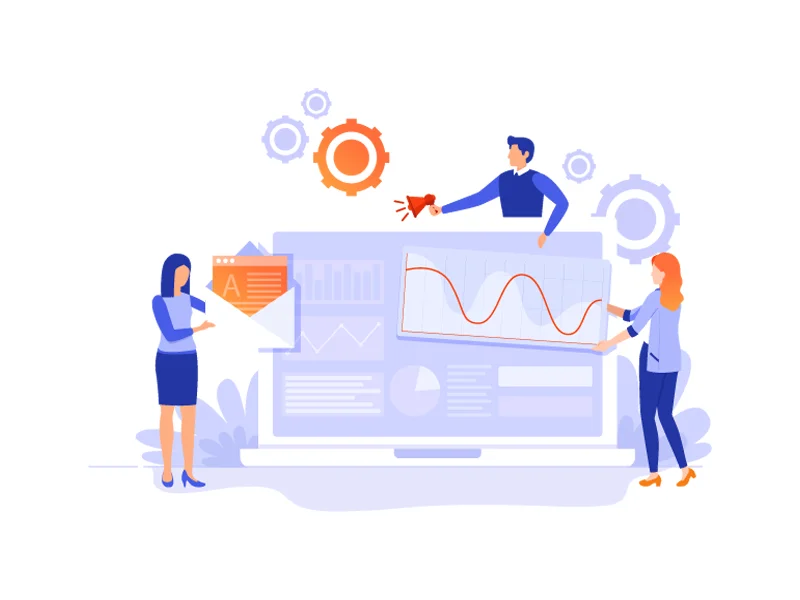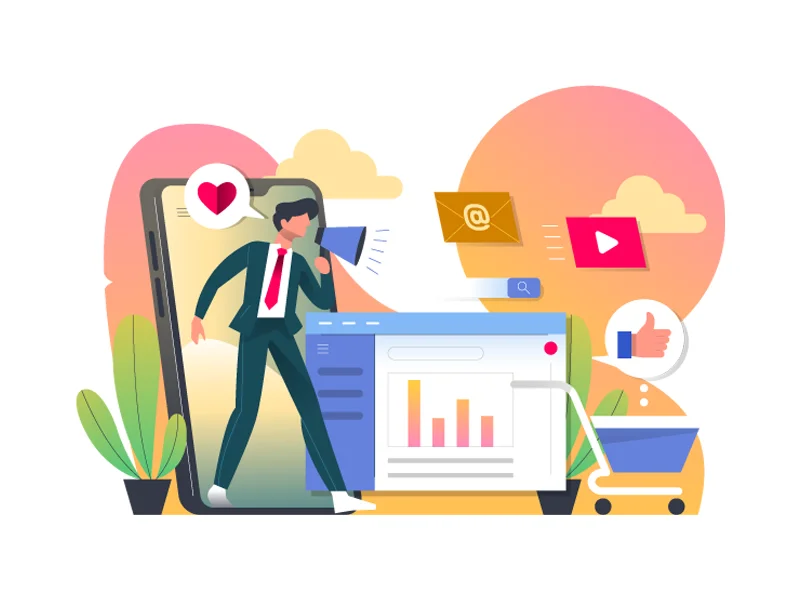

Revolutionizing Industries: Top 15 AI Technologies to Watch Out For
Artificial intelligence (AI) technology is the field of developing and utilizing machines to perform the allotted tasks that typically need human intelligence, such as visual perception, decision-making, speech recognition, and language translation. AI technologies are increasingly integrated into our daily lives, from voice assistants like Alexa and Siri to self-driving cars and smart home devices.
The main objective of AI technology is to enable machines to perform tasks previously only possible for humans, such as reasoning, problem-solving, and learning. Technology AI researchers and developers use various techniques, including machine learning, neural networks, deep learning, and natural language processing to achieve this.
Machine learning is a latest AI technology that involves training machines to learn from data without explicit programming. As they immensely use more information, machine learning algorithms improve their performance over time, enabling devices to perform tasks with increasing accuracy and efficiency.
Deep learning is an outcome of machine learning that comprises techniques of artificial neural networks with multiple layers to learn complex patterns. It has proven successful in applications like image and speech recognition, natural language processing, and autonomous vehicles. Neural networks are computational models that resemble the structure and function of the human brain. They process and analyze large amounts of complex data and are used in deep learning algorithms.
Natural language processing (NLP) is an outcome of AI that is entirely based on the ability of machines to understand and generate human language. NLP is used in applications such as language translation, sentiment analysis, chatbots, and voice assistants.
Artificial Intelligence technology can potentially revolutionize various industries, including healthcare, finance, transportation, and manufacturing. It is a rapidly advancing and exciting field that can transform many aspects of our daily lives. AI-powered diagnostic tools can aid doctors in making more accurate and timely diagnoses, while AI-powered financial models can assist investors in making better investment decisions. Continued innovation and development of AI technology could revolutionize how we work, communicate, receive healthcare, and travel.
Best 15 Artificial Intelligence Technologies
Artificial Intelligence (AI) technology encompasses a range of techniques and applications that enable machines to perform tasks that typically require human intelligence. Some of the top AI technologies include:
Natural Language Processing (NLP) - NLP is a field of new artificial intelligence that aims at the ability of machines to understand and generate human language. NLP is used in different applications such as language translation, sentiment analysis, chatbots, and voice assistants.
Deep Learning - Deep learning is a subset of machine learning that comprises of training artificial neural networking with many layers to learn complex patterns. Deep learning has shown promising results in image and speech recognition, natural language processing, and different applications.
Computer Vision - Computer vision is the ability of AI systems to interpret and understand visual information from the world. This technology is used in autonomous vehicles, facial recognition, and surveillance systems.
Speech Recognition - Speech recognition is the ability of latest AI systems to understand and interpret human speech. This technology is used in applications such as voice assistants, speech-to-text transcription, and automated call centers.
Robotics - Robotics uses AI to develop autonomous machines that can conduct tasks without human intervention. Robotics is used in applications such as manufacturing, healthcare, and transportation.
Predictive Analytics - Predictive analytics uses AI algorithms to analyze data and predict future events. This technology is used in marketing, finance, and healthcare applications.
Chatbots - Chatbots are AI-powered programs that simulate human conversation and perform tasks such as customer service or scheduling. Chatbots are used in e-commerce, customer service, and marketing applications.
Autonomous Vehicles - Autonomous vehicles are self-driving cars and other vehicles that use AI to navigate and operate safely on the roads. This technology is used in transportation and logistics.
Virtual Assistants - Virtual assistants are AI-powered software for scheduling, reminders, and email management tasks. Virtual assistants are used in personal productivity, healthcare, and education applications.
Facial Recognition - Facial recognition is the ability of new AI systems to identify and recognize human faces. This technology is used in security, surveillance, law enforcement, and marketing applications.
Sentiment Analysis - Sentiment analysis is the use of AI to analyze and interpret human emotions and opinions in text or speech. This technology is used in social media monitoring, market research, and customer service applications.
Reinforcement Learning - Reinforcement learning is a type of machine learning that involves training AI systems through trial and error. This technology is used in gaming, robotics, and process optimization applications.
Predictive Maintenance - Predictive maintenance uses AI to predict when machines or equipment need maintenance or repair. This technology is used in manufacturing, transportation, and energy applications.
Generative Adversarial Networks (GANs) - GANs are a type of deep learning that involves training two neural networks to generate new, realistic data. This technology is used in applications such as image and video generation, 3D modeling, and data augmentation.
Edge Computing - Edge computing uses AI algorithms and computing power on edge devices such as smartphones or Internet of Things (IoT) devices instead of relying on centralized servers. This technology is used in healthcare, transportation, and industrial automation applications.
Take Away
In conclusion, artificial intelligence technology has come a long pathway in a relatively short time and continues evolving rapidly. From deep learning and natural language processing to robotics and predictive maintenance, AI technology has the potential to change many aspects of our daily lives, making them more efficient, productive, and enjoyable.
While some may worry about the potential risks associated with AI technology, such as job displacement or the possible misuse of autonomous weapons, it is essential to remember that AI technology is a tool that can be applied for both good and bad. Therefore, we must ensure that AI technology is developed and used responsibly and ethically.
As we look towards the future, we expect to see even more significant advancements in AI technology, with new applications and use cases emerging daily. However, it is necessary to remember that AI technology is not a replacement for human intelligence or creativity but rather a complementary tool that can enhance our abilities and help us solve some of the world's most pressing challenges. As such, it is up to us to harness the power of AI technology and use it to create a brighter future for all. We can build a more prosperous, equitable, and sustainable world by working together and using AI technology responsibly.

